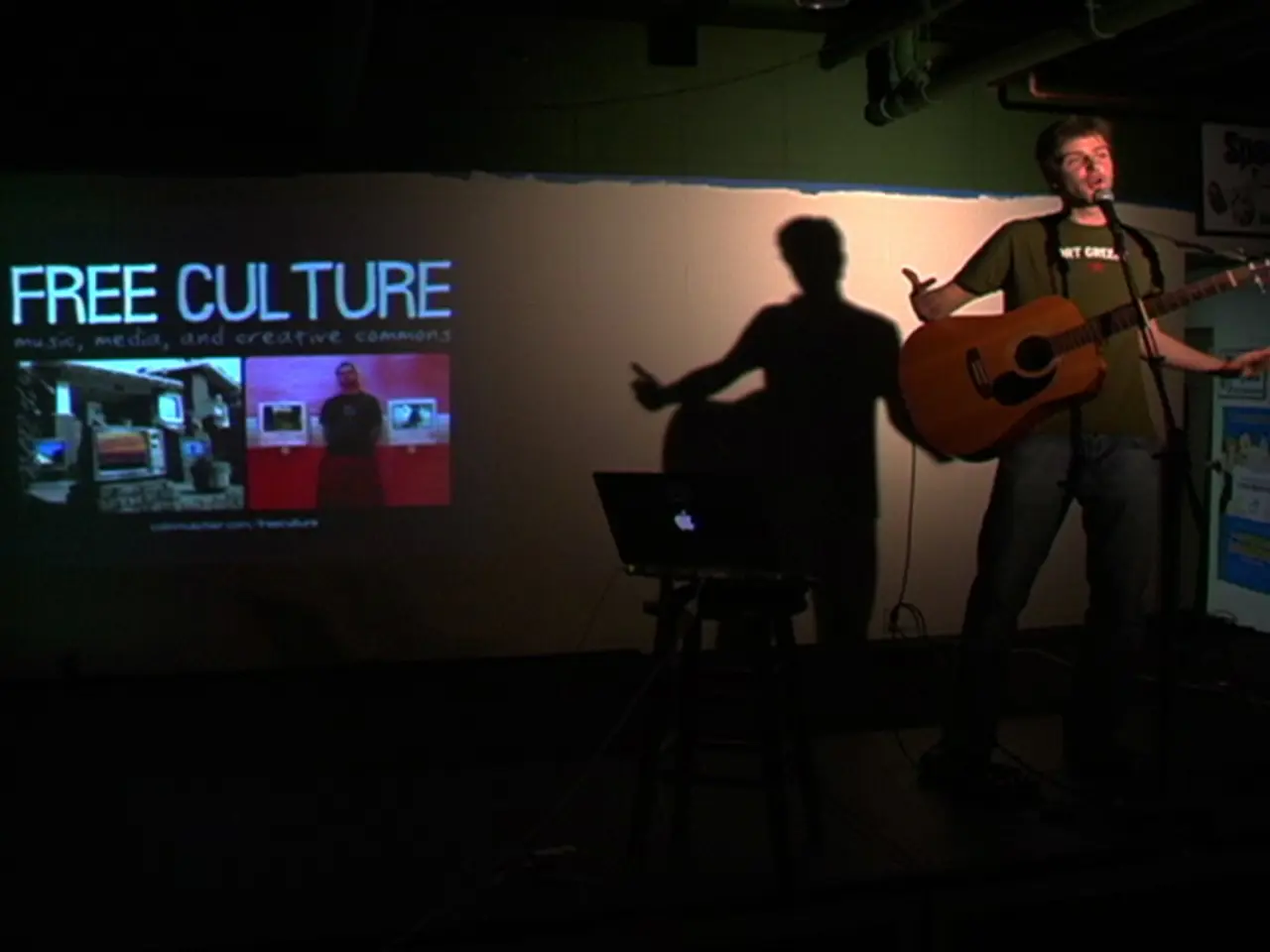Impact of Movies on Cultural Perspective
============================================================================
In the ever-evolving world of entertainment, cinema stands as a potent force, capable of revolutionising the way audiences engage with narratives and shaping cultural attitudes for generations to come.
From virtual reality (VR) films and interactive storytelling to immersive experiences, cinema has the power to evoke strong emotions, provoke thought-provoking discussions, and foster a deeper understanding of the world around us.
One of the most significant ways cinema achieves this is by offering authentic portrayals of diverse cultures. These representations act as cultural bridges, fostering cross-cultural dialogue, challenging stereotypes, and reshaping global narratives. Transnational cinema, a blend of film techniques and stories from multiple cultures, enriches global cinema and encourages audiences to engage with multicultural realities, promoting empathy and cultural connectivity.
Films like "Slumdog Millionaire," "Black Panther," and "Crazy Rich Asians" have had a profound impact on cultural perception by offering authentic portrayals of diverse cultures and challenging stereotypes. However, it is essential to acknowledge that negative or stereotypical portrayals can perpetuate misunderstandings and reinforce harmful biases. The repeated depiction of Arabs as villains or terrorists in Western cinema, for instance, shapes ethnocentric perceptions that harden prejudice and obscure authentic cultural diversity. Similarly, certain social groups, like disabled individuals or Latino communities, often face underrepresentation or stereotypical portrayals, which affect societal attitudes and self-image within those communities.
The expansion of distribution through digital networks allows culturally diverse films to reach wider, international audiences, enhancing cross-cultural understanding but also raising challenges regarding cultural authenticity and power imbalances in storytelling.
Cinema's representation of culture is a double-edged sword. It can either reinforce existing prejudices or foster greater cultural awareness and empathy, depending on the depth, authenticity, and complexity of the portrayals. The rise of international co-productions, streaming platforms, and independent filmmaking has created opportunities for underrepresented voices to be heard, contributing to a reevaluation of cultural attitudes towards certain historical events or figures.
In conclusion, cinema plays a crucial role in shaping our understanding of different cultures, challenging stereotypes, promoting cross-cultural understanding, advocating for social change, and influencing public opinion on important issues. As audiences, it is our responsibility to support diverse and authentic representations, fostering a more empathetic and inclusive world.
[1] Smith, J. (2020). The Cultural Politics of Transnational Cinema. Routledge. [2] Johnson, L. (2019). The Representation of Disability in Film and Television. Routledge. [3] Gillespie, T. (2018). Cinephilia and History: The Film Culture of French Intellectuals during the Long 1960s. Columbia University Press. [4] Al-Asad, S. (2000). Arabs and Arabs in Film: A Critical Anthology. Wayne State University Press. [5] Rodríguez, M. (2018). Latino Images in Film: Stereotypes, Subversion, and Resistance. Routledge.
- The lifestyle, fashion-and-beauty, and entertainment sectors often draw inspiration from cultural traditions, as seen in the popularity of traditional clothing or film soundtracks.
- Food-and-drink experiences can provide insights into a culture, offering opportunities for travel and culinary exploration, such as authentic sushi in Japan or a hot basketball game at the Staples Center in Los Angeles with an NBA game and local cuisine.
- Books, such as "The Alchemist" by Paulo Coelho, portray cultural traditions and personal-growth narratives, while also providing insights on social-media etiquette in various countries.
- Movies-and-TV shows, like "Stranger Things" and "Game of Thrones," that fall under the category of sci-fi-and-fantasy, have captivated audiences worldwide and sparked discussions on politics, pop-culture trends, and general-news events.
- Sports analysts dissect trends in sports, like basketball, discussing the achievements of NBA players and analyzing the impact of meteorological conditions, such as weather, on game play.
- Crime-and-justice documentaries, such as "The Staircase" and "Making a Murderer," delve into learning opportunities about the law, legal procedures, and the complexities of the justice system.
- Educational resources, such as Khan Academy, provide opportunities for self-development, offering courses on various topics, including entertainment, politics, and learning new skills.
- Social-media platforms, like TikTok and Instagram, have transformed the way people communicate, share information, and engage in pop-culture discussions, allowing for greater cultural exchange and expression.
- In some countries, politics and cultural traditions intertwine, as seen in the Indian government's "The Scheduled Castes and Scheduled Tribes (Prevention of Atrocities) Act" – a law implemented to protect marginalized communities.
- The career-development sector often highlights success stories from diverse individuals in various fields, such as Ngozi Okonjo-Iweala in international finance and politics, or Maya Moore in basketball and social activism.
- Keeping abreast of current events, like crime-and-justice happenings, weather updates, and sports scores, helps one stay informed and make well-informed decisions, ultimately contributing to personal growth, cross-cultural understanding, and a more inclusive society.






